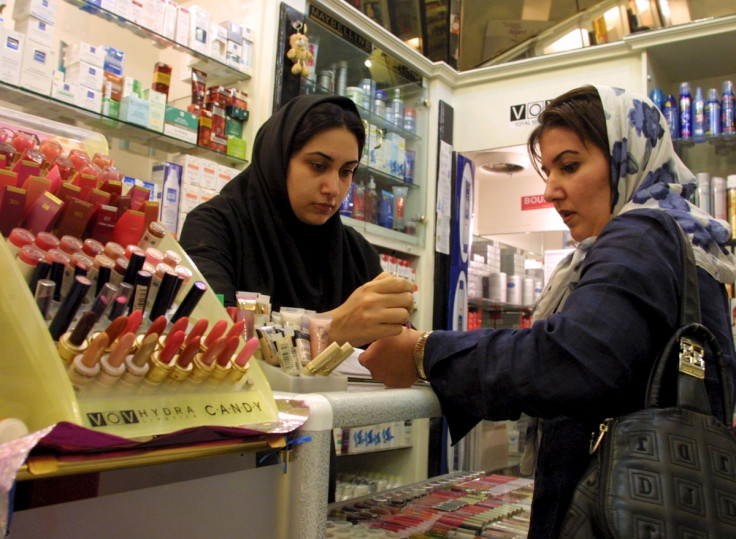Iran hijab laws could create gender apartheid say human rights experts
The Iranian authorities have intensified the punishments for those refusing the hijab, which threatens women and girls being treated as second-class citizens.

Almost 12 months after the 22-year-old Mahsa Amini died while in the custody of Iran's "morality police", the Iranian authorities are increasing the punishment for women who refuse the hijab.
Since 1995, under the Islamic Penal Code, women and girls in Iran who do not wear the hijab could be imprisoned for anywhere between 10 days and two months.
Since the emergence of the 'Women, Life, Freedom' movement, which attracted global attention and set out to see fundamental equal rights for women in Iran, the punishments for those who refuse the head covering have become more severe.
As an act of resistance and symbol of their protest, which was fuelled further by the death of Mahsa Amini, women and girls in Iran lived their day-to-day lives with their hair uncovered.
On Friday 8 September, a group of UN Human Rights Council-appointed experts publicly acknowledged: "The draft law could be described as a form of gender apartheid, as authorities appear to be governing through systemic discrimination with the intention of suppressing women and girls into total submission."
"The draft law imposes severe punishments on women and girls for non-compliance which may lead to its violent enforcement," the independent experts declared.
The draft law, which intends to punish those who display "nudity, lack of chastity, lack of hijab, bad dressing and acts against public decency leading to disturbance of peace", gives the Iranian morality police the right to punish girls as young as nine.
The human rights experts also recognised: "The weaponisation of "public morals" to deny women and girls their freedom of expression is deeply disempowering and will entrench and expand gender discrimination and marginalisation, with wider negative consequences for children and society as a whole."
"We urge authorities to reconsider the compulsory hijab legislation in compliance with international human rights law, and to ensure the full enjoyment of human rights for all women and girls in Iran," the group urged.
Iran unmasked: A mother courageously films her daughter without the mandatory hijab and sent me the video, urging other girls to embrace their choice. The Islamic regime’s narrative that the hijab is intrinsic to Iranian culture is false. Don’t be deceived. #WomanLifeFreedom pic.twitter.com/3vLUDrOKmC
— Masih Alinejad 🏳️ (@AlinejadMasih) September 10, 2023
In April 2023, the Iranian authorities passed a bill that monitored women in public. Several cameras were put up in public places in order to further identify and punish unveiled women.
Later on, in July 2023, reports found that the morality police had been redeployed in certain regions of the country with the intent to enforce the compulsory veiling requirements.
On 13 August, the new legislation that sees women and girls punished without a public debate was passed by parliament.
Hossein Jalali, an Iranian Member of Parliament, revealed that the new strategy to enforce the strict veiling laws will not allow for women to be physically punished. Instead, those who stand and move around unveiled will be given financial and administrative penalties.
Earlier this year, MP Jalali also noted that the financial penalty will see women fined up to 30 billion Iranian Rials, the equivalent of $60,000.
Other punishments include driver's licences being seized, passports being cancelled as well and internet access being restricted.
Speaking of the list of penalties, which is expected to increase further, the group of human rights experts said: "The punishments include deprivation of a range of basic freedoms and social and economic rights, which will disproportionately affect economically marginalised women."
Masih Alinejad, a women's rights activist and exiled Iranian journalist, told reporters: "This new bill has only one meaning: gender apartheid is legal in Iran and now they are backing legal ways to treat women like second-class citizens."
Alinejad, who has been at the forefront of the movement that goes against the restrictive veiling laws, added: "Oppressing women is not part of our culture, compulsion is not part of our culture, a barbaric law is not part of our culture."
Despite MP Jalali claiming that women and girls will go physically unharmed, Alinejad recalled: "When I started campaigning people would ask why I was making such a fuss about a small piece of cloth. The compulsory hijab is not about a small piece of cloth. It can get you lashes, it can get you imprisonment, it can get you raped and killed."
© Copyright IBTimes 2025. All rights reserved.





















